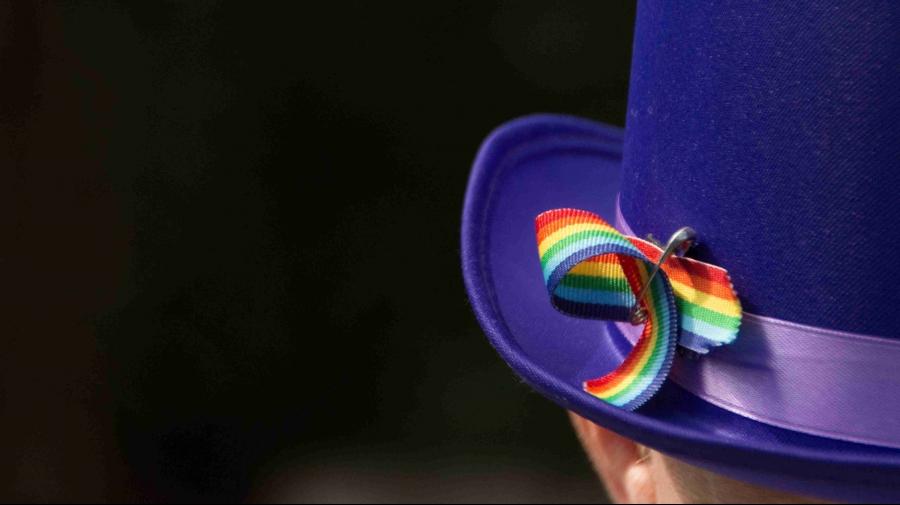Straight Guide to Pride: How to be an Ally
October 14, 2018
The LGBTQIA community has come out to play in 2018, with more openly LGBTQIA congressional candidates than ever according to the New York Times. With this rainbow wave comes a wave of questions.
It’s clear that a main pillar of the LGBTQIA community is love, but for straight people, it can be hard to understand the intricacies of the community. And while people don’t have to understand the community to accept the community, it’s helpful to be familiar with a few terms and concepts in order to show support.
Pride Week was last week, and the Valencia Voice got a chance to sit down with Jessica Gilmer, 19-year-old psychology major, and treasurer of the Gay-Straight Alliance at Valencia. She discussed things from the importance of pride, to how to be an ally, and even her own coming out.
The Importance of Pride:
“A lot of people [are] not accepted by their families, or even sometimes their long-term friends turn on them because they come out,” says Gilmer. “And it can be really lonely. It can be really depressing sometimes, and pride lets you be with people who love and support you and have gone through the same things you have and they’re kind of an inspiration to look up to.”
“It’s a way to feel better about who you are. It’s like when you’re the only one in your friends or family that has that certain thing, it can feel very lonely and pride lets you feel connected to every one and like you’re not alone,” says Gilmer.
Gilmer knows this first hand; her family is from the Bible Belt and has had a hard time understanding that she is pansexual.
“They still love me very much but it’s like I have my beliefs, you have your beliefs, we’re just not gonna talk about it,” she says.
How can straight people celebrate pride?
“My first thought is, ‘they don’t’ because if you don’t know anyone that’s gay personally, it’s very hard to go to pride events because they might feel a little ostracized,” says Gilmer.
“But another way you can show support for the LGBT community is to support them in other ways, like voting for LGBTQ representatives. They don’t have to be queer themselves, but at least allies. Support things like the Zebra Coalition that help feed and home homeless LGBTQ youth.”
“If you do know someone that’s gay and they invite you to pride, I would say the whole point of pride is to put the spotlight on the gays,” says Gilmer. “So you’re more there to support them. Rather than be like ‘hey I’m an ally!’ be like ‘hey y’all are pretty awesome and I support you.’”
Do’s and Don’ts:
Don’t be afraid to be an ally. Everyone is welcome to celebrate pride, even cis gender straight people, as long as they’re supporting the community.
Do ask for preferred names and pronouns, and stick to them.
Don’t over apologize. If you use the wrong gender pronoun, don’t make a big deal of it, just correct yourself and move on. Normalization is a big part of acceptance.
Do let your gay friends know that you love and support them no matter their sexual orientation or gender identity.
Don’t out your friend, or anyone for that matter. When speaking with LGBTQIA friends around other people, it’s best not to mention their sexual orientation to avoid outing them.
Do be an upstander. If you see something hateful do your best to stop it, step in, call the police, get the aggressor on camera, whatever you can do to make those being discriminated against feel safer.
Terms:
It is important to remember that lesbian, gay, bi-sexual, transgender, queer, intersex, and asexual as well as many other LGBTQIA labels are adjectives, not nouns.
If Tom was born a woman, he is not a transgender, he is a transgender person.
Lesbian – describes a woman who is attracted to other women.
Gay – describes people who are attracted to the same sex. Gay is preferred to homosexual which is considered outdated and derogatory.
Bisexual – describes people who are attracted to both men and women. (Not to be confused with pansexual which does not place any gender limits on attraction.)
Transgender – describes someone whose gender identity is different from the one they were assigned at birth.
Queer – traditionally a derogatory term, some members of the LGBT community have taken back the word as a general descriptor of LGBT. However, it is best to not call someone queer unless they identify that way.
Intersex – describes people whose biological sex is ambiguous, they may be born with some components of both male and female reproductive systems.
Asexual – describes people who lack the desire to have sexual partners.
For more on these definitions and many others, visit https://www.wearefamilycharleston.org/lgbt-a-z-glossary/





Shammy Peterson • Aug 11, 2021 at 3:40 am
It sure was nice when you said that you should not be afraid to become any ally since everyone is welcome to celebrate pride. This is a nice tip for me since my brother recently came out to me, and I want to make sure that he will feel supported by us. I would also imagine him joining LGBT support groups since I understand that he has been suffering from mental issues since he came out to the public. I would want him to find people who have the same feelings and sentiments as him. https://encircletogether.org/services